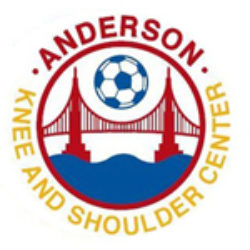Given all the health benefits of an active lifestyle and the beautiful outdoor spaces of our area, many San Francisco Bay Area residents participate in regular exercise. If you travel anywhere on the weekend, you will see that the area’s trails and roads are full of road cyclists, runners,hikers, and mountain bikers. This doesn’t even consider those who participate in indoor exercise activities such cross-fit, yoga,weights, etc.

Unfortunately, a good number of regular exercisers will experience knee pain from time-to-time. If active people came to the knee doctor for every ache and pain, it would become a part-time job. So the question becomes what knee pain is worth getting checked; we are lucky in the San Francisco Bay Area to have many of the best knee doctors around.
As an orthopedic surgeon in San Francisco, I see and talk with many patients who want to maintain an active San Francisco lifestyle yet have knee problems. Here are my thoughts.
Common Types of Knee Injuries: Anterior Cruciate Ligament and Medial Collateral Ligament
Sometimes when a patient looks me up as his or her knee doctor, it’s obvious what the pain is when they come into my office. Any acute, traumatic injury should be evaluated especially if there is the immediate onset of pain and swelling. While fractures about the knee present in a way that makes the need for further evaluation obvious, some patients are able to convince themselves that they can “walk off” most ligament injuries.The two most common knee ligaments that are injured are the Anterior Cruciate Ligament (ACL) and the Medial Collateral Ligament (MCL). While most MCL’s heal with appropriate bracing, a good number of patients with ACL injuries will have ACL reconstruction to hasten their return to the prior level of activity and prevent secondary injuries,such as meniscus tears. Therefore, a patient who experiences the acute onset of pain and swelling associated with their knee giving out should seek an evaluation with an orthopedic surgeon to ensure that they are appropriately diagnosed and treated.
Most traumatic meniscus tears require surgery. The symptoms that they cause, locking and catching that causes pain and limits function, are a result of the mechanical consequence of the injury. The torn portion of meniscus acts similar to a pebble in one’s shoe. Unfortunately,most meniscus tears do not respond to non-operative treatments.Therefore, a patient who experiences the onset of episodic pain and the above mechanical symptoms after a twisting knee mechanism should be seen by an orthopedic surgeon.
There are a whole host of musculo-skeletal conditions that can cause the insidious onset of chronic knee pain such as patello-femoral syndrome (AKA chondromalacia of the patella) and iliotibial band syndrome (ITB syndrome). While an orthopedic surgeon can most accurately make a diagnosis and prescribe an initial non-operative treatment plan, most patients will respond to some basic, intuitive measures. Sometimes, the easiest thing to do is take a week off or cross-train. By changing the routine and allowing the injured part to rest, most people will experience symptom relief. Similarly ice and compression can provide relief. A well-rounded stretching and strengthening routine can not only address the root problem but can prevent these issues if followed routinely.
Reaching out to a San Francisco Knee Surgeon or Specialist
Unfortunately, some patient’s problems do not respond to this at-home approach. If that’s the case or if your symptoms are severe enough to cause a significant restriction of your activity, then an trip to the ortho office makes sense. Fortunately, San Francisco is a city not just with an active lifestyle but with many top orthopedic surgeons and specialists!
Clearly, this discussion only scratches the surface, but hopefully this provides some assistance in decision making. Of course, when in doubt, have it checked out.
~ Robert Purchase, M.D., March 3, 2013

